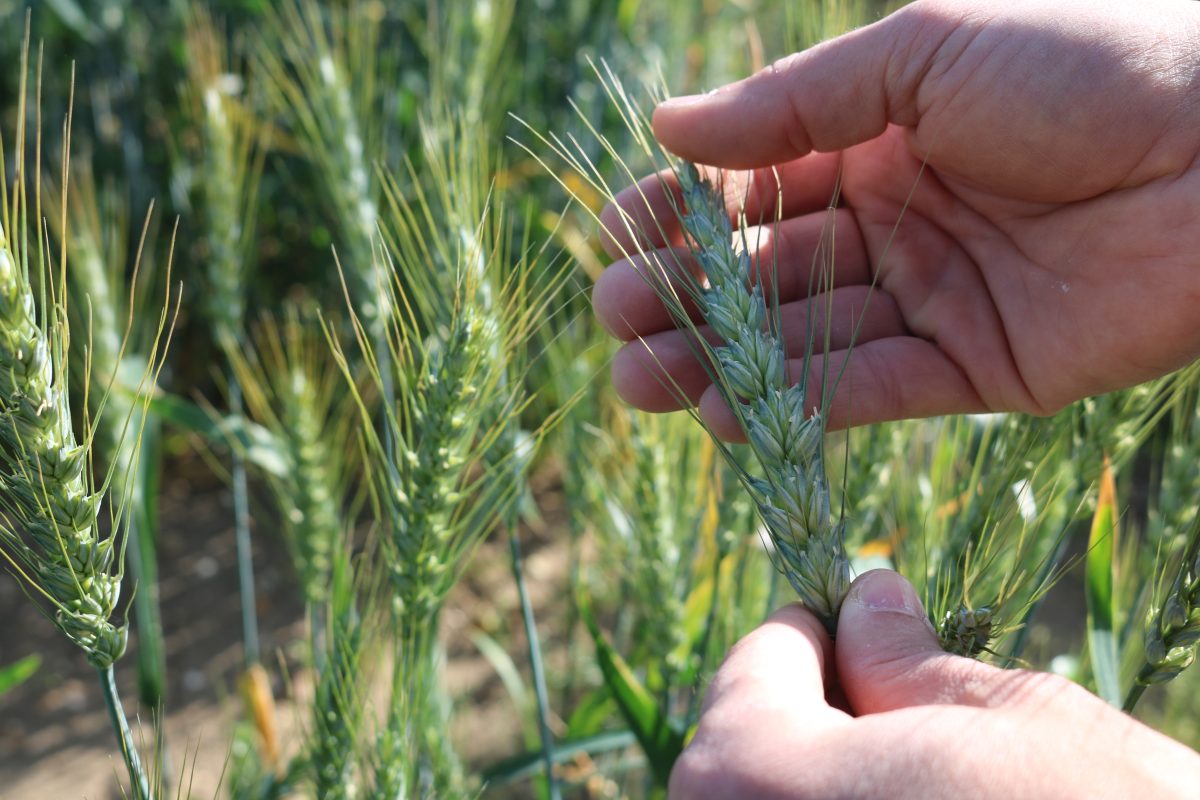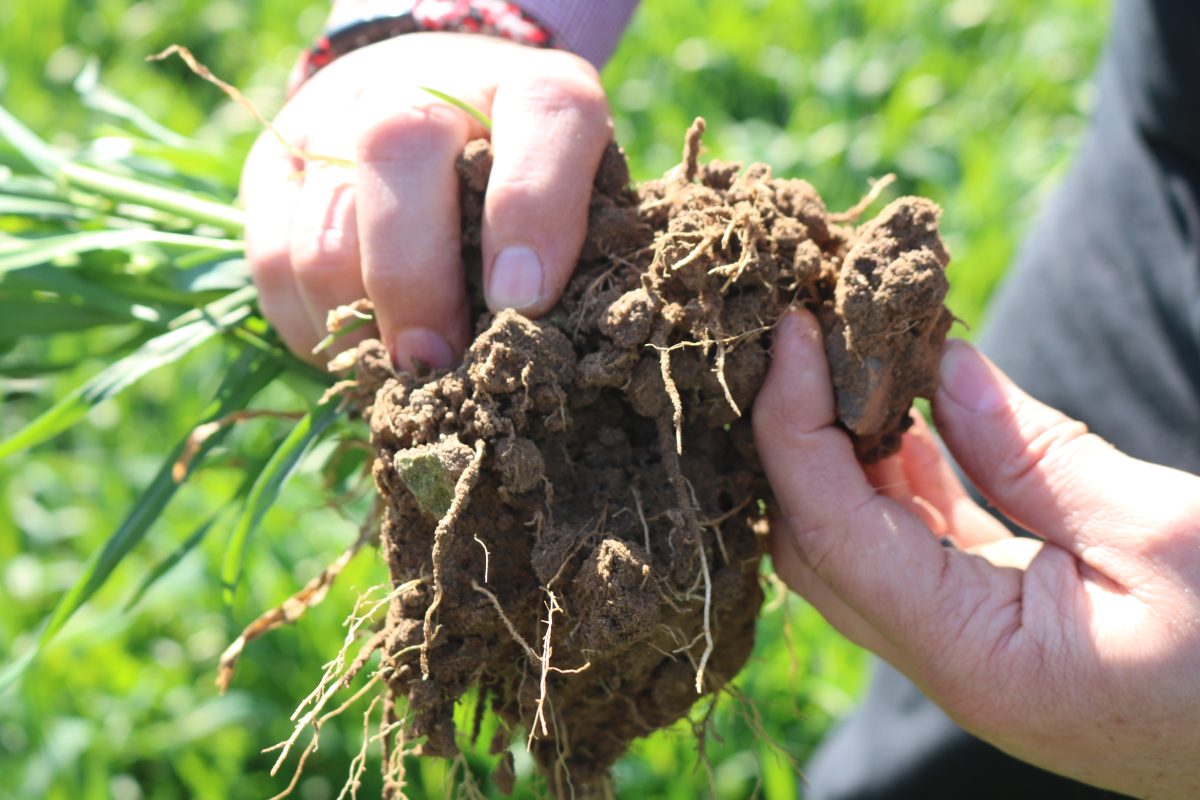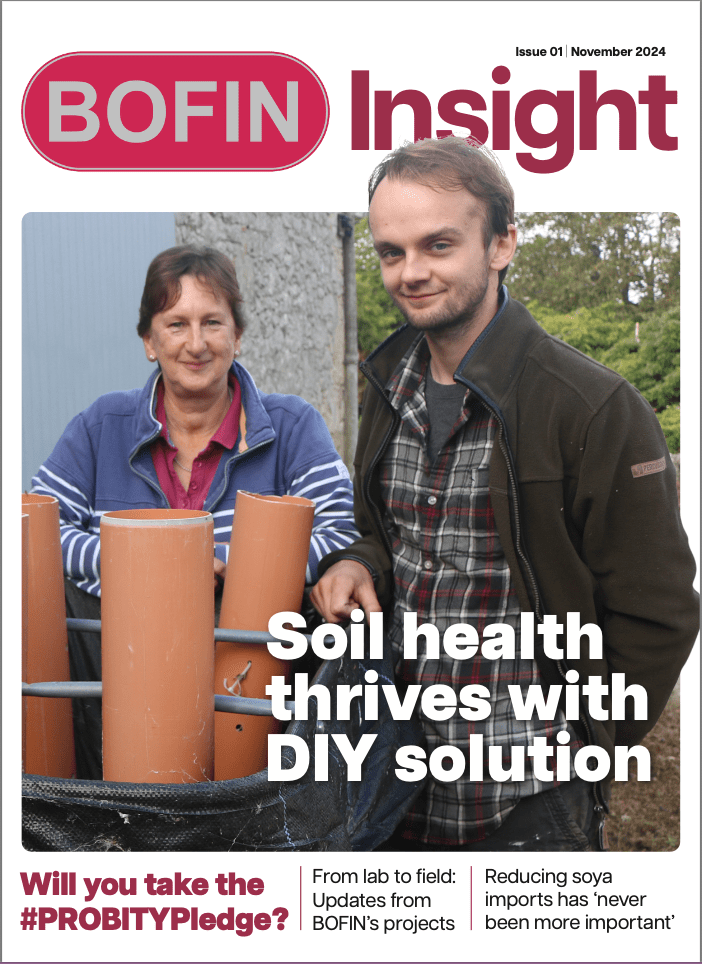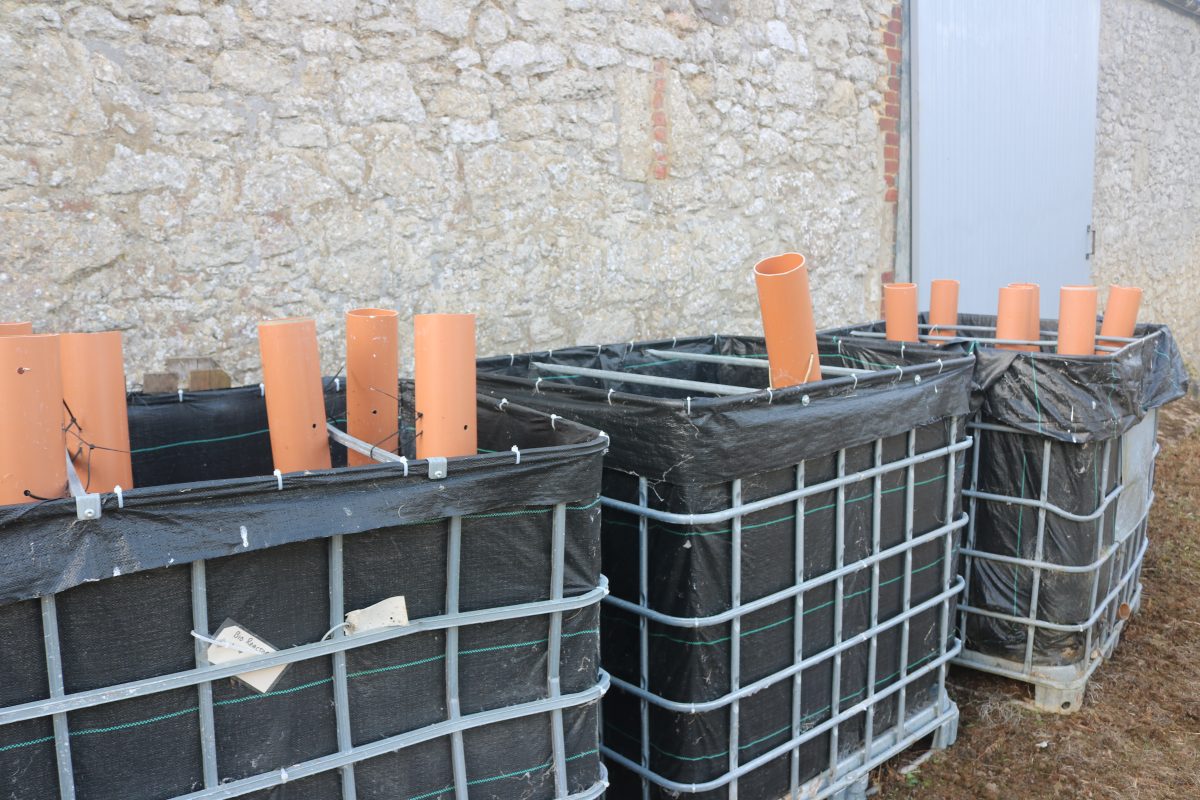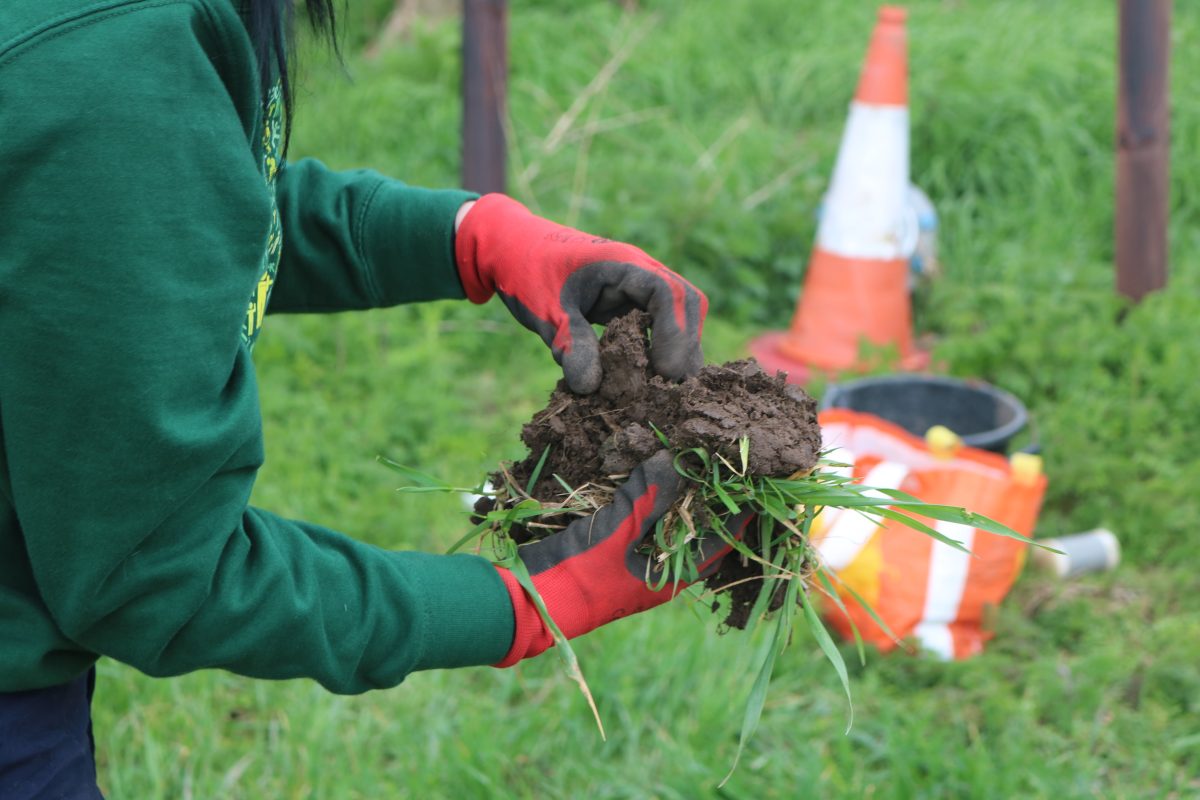Innovation and collaboration sum up Charles Paynter’s approach to his transition from full-time management of his family farm in Bedfordshire, to one embracing continued learning through on-farm trials.
A neat row of machinery parts gleam on the kitchen table at Rifle Range Farm as Charles Paynter talks through plans for modifying his drill. With his passion for regenerative farming, and a talent for building and adapting farm machinery, his enthusiasm for the project is as bright as the shiny metal components.
With the help of a grant from Anglian Water his modifications should enable relay cropping on the farm because – if all goes to plan – he will be able to lift alternate sets of coulters to protect the established crop, while a second crop is drilled.
Much like his other interventions on the farm – including the move to regenerative principles around five years ago – Charles’s idea is inspired by experiences of another farmer.
This time it was Kent grower Andy Howard who has exchanged visits with Charles to talk about the regen approach and intercropping. Since turning 65 Charles has moved away from full-time management of the family farm – a role which has passed to his brother Simon – and has embraced a new approach.
With more time he has taken to daily field walks, developing a more intimate knowledge of the farm’s biodiversity and soil health, and increased his drive to look for innovative approaches. “I used to look across the fields and see a list of jobs,” he says. “Now I feel more connected to the land and the soil which I had been missing.”
Learning and innovating
Regular soil testing and recording his findings via the Soil Mentor app are part and parcel of this. He also makes time to read and listen to audiobooks and podcasts, learn from experts and is making his way through the Groundswell talks on YouTube.
The farm was originally purchased by Charles’s grandfather in 1933 and expanded with the purchase of a second block of land in the 1980s, bringing it up to 221ha. Before joining the family business Charles worked for Velcourt. Adapting and innovating is nothing new for the family. Charles recalls his father Richard’s involvement in the ‘10-ton club,’ a commitment to improving crop yields and exploring new techniques.
Even now in his nineties Richard maintains his interest in the farm and has also been enjoying the Groundswell talks on YouTube. Charles and Simon have inherited his love of learning and innovating. Alongside the farm they have both used their talents with machinery to develop gate automation businesses.
Around five years ago, a perfect storm of challenges prompted them to commit to regenerative principles alongside a neighbour with whom they shared machinery. Increasing crop losses, persistent problems with cabbage stem flea beetle and blackgrass, and a growing awareness of climate change, led them to think differently.
They took the plunge, invested in a drill and committed to a no-till approach. “We learned a lot and did OK financially, but the biggest gain was that the soil was gaining fertility and resilience, and we had greater biodiversity.
Understanding soil
“Like most farmers I used to be more focussed on what’s going on above ground. We knew about organic matter, but we didn’t know about the microbiome. As I learned more, I stopped focussing on cash cropping and started helping our soils to help us.”
Keeping meticulous records has been important with this, he says. “I record my observations in the field and keep records of every chemical input too.” The next step is to explore biologicals and Charles plans to purchase a second-hand sprayer for applications.
“I’ve created compost and used it to create an extract – a stable liquid product you can apply to seed. “The theory is that it sparks interactions with the soil and will reduce reliance on nitrogen. Even if we can’t see exactly what it is doing, it is part of a beneficial process and diversifying the farm’s microbiome.”
The focus on soil health has unlocked other benefits including improved water management, reduced carbon emissions, and enhanced resilience. Charles is also passionate about the links between farming practices and improved nutritional value of the food they produce.
This year the farm is producing winter wheat, two varieties of spring wheat and peas and has a Sustainable Farming Incentive (SFI) agreement which covers various initiatives including floristic margins. The Paynters also continue to seek ways to create more protected income streams and working with other organisations to explore new avenues for innovation and diversification.
Slug Sleuth
Trial work is one such area. Charles joined the British On-Farm Innovation Network (BOFIN) soon after its launch in 2020 having become interested in its aim to connect farmers who are committed to on-farm trials.
He then joined its SLIMERS – Strategies Leading to Improved Management and Enhanced Resilience to Slugs – project as a ‘Slug Sleuth’ in 2023. The role involves slug monitoring on the farm – setting traps and collecting data on slug presence.
This feeds into research by Professor Keith Walters at Harper Adams to understand slug behaviour in different conditions and is helping to develop a predictive model. In May 2025 Charles was also involved with night-time data collection on his farm with Dr Kerry McDonald-Howard of UK the Agri-Tech Centre, one of the project partners.
Together with work carried out by other project partners – Agrivation, Fotenix and Farmscan Ag – this is leading to the development of an AI-based precision treatment solution.
The project partners’ collective vision is a system which can predict where slug patches will be, identify individual slugs in the field and treat them individually with nematodes, therefore avoiding the need for broadscale slug pelleting.
Charles’ role in the project has also included trialling four ‘slug resistant’ wheat varieties on the farm. These are varieties from the John Innes Centre’s Watkins collection crossed with Paragon, which were identified as potentially resistant to slug damage by scientists. Charles’ four trial plots have established well, and he has been monitoring them for damage. Meanwhile Dr Simon Griffiths and his team at the John Innes Centre, which is the sixth partner organisation, are exploring the varieties further to identify the genes responsible for the apparent resistance trait and whether it could be introduced to commercial varieties.
This work is helped by Dr Victor Soria-Carrasco and his team in the insectary who are continuing feeding trials with slugs on the unusual wheat lines. Charles’ involvement in the SLIMERS project is timely, with regenerative practices and the resulting increase in crop debris leading to an increased slug burden on the farm.
The knowledge sharing element of the project is also important and mirrors his commitment to creating a legacy of regeneration. “Every farmer has something to share, and you learn something from them all,” he says.
Charles believes in the value of working with scientists and researchers to increase knowledge, but that farmers must be centre stage of projects, something which the BOFIN project upholds.
“All roads come back to the farmer,” he says. “As individuals we may not be the most technical, savvy or proficient, but we have farmer experience and instinct, and no amount of research can replace that.”
Found in:
Issue #2
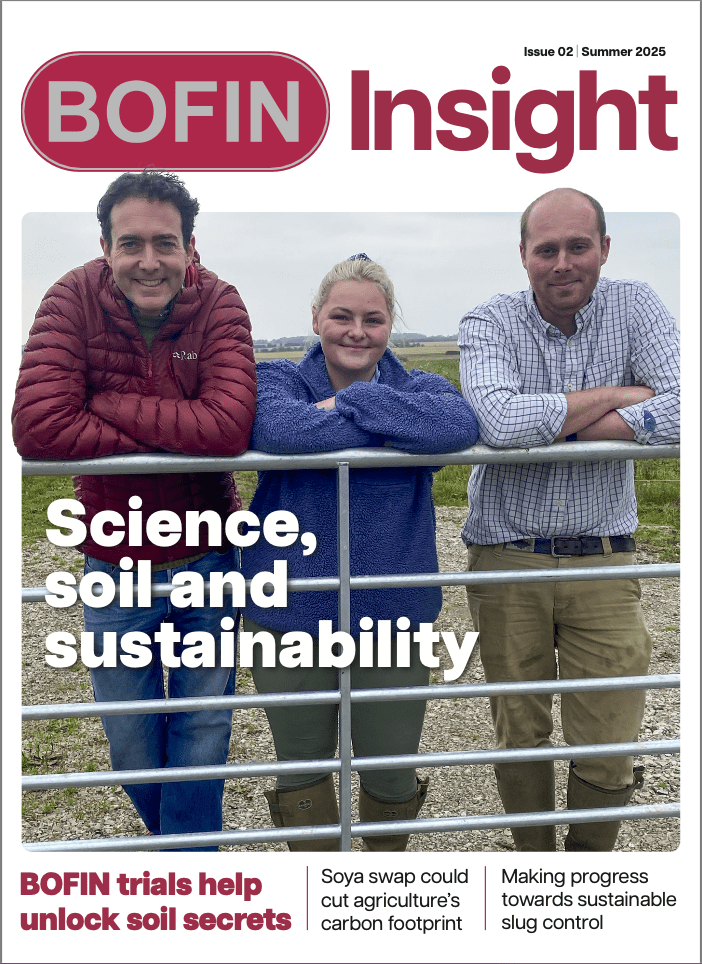
Farmers urged to take opportunity to lead innovation
Science, soil and sustainability focus at Manor Farm
Farmer and scientist collaboration helps to unearth soil secrets
Soya swap could cut agriculture’s carbon footprint
Gene-edited crops: A new frontier for England’s farmers?
Learning through on-farm trials
A dance to dazzle

